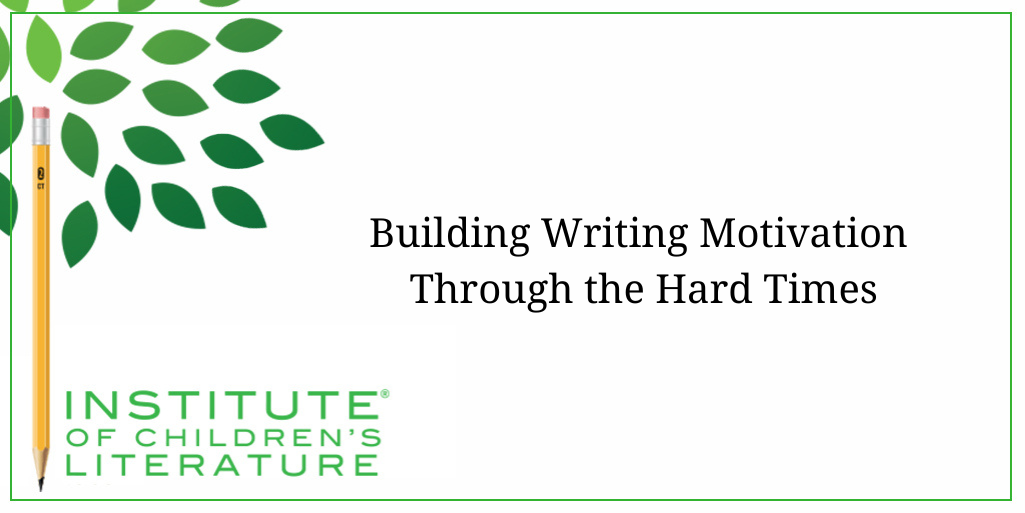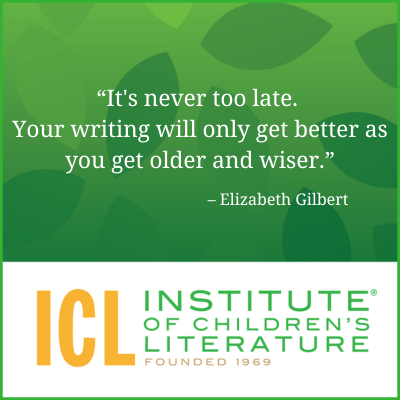
5 Ways Writers Can Prep for 2025 Goal Setting
Before we roll on to the new writing year, let’s harness our optimism for the blank slate before us and prepare for our 2025 Goal Setting just for writers.

Writing, like many creative endeavors, especially when approached as a potential career, is a fairly lumpy mixed bag. It’s joyful and exciting because creative pursuits are both of those things. Creativity is the process of bringing something into reality that didn’t exist before. That’s astonishing. But writing can also be frustrating, and sometimes disheartening.

I love writing, but I’ve also had points in my career when I felt totally defeated, when I honestly felt that I’d stop writing if I only knew how. This hit at the time when I saw my writing career as stagnant. I’d had enough success to know I could write. I was making some money, though not nearly enough to live on. Writing was a skillset I definitely possessed. I’d worked hard at it. I’d gotten a lot of positive feedback, but I was trying to take the next step and move into becoming a writer of books, specifically a writer of fiction. And though my rejections at that point were sometimes couched in terms that were meant to be encouraging, they were still rejections and I did not feel encouraged. I was getting really tired of rejections. I was beginning to think that writing as a sporadically paying hobby was the best I was going to be able to manage, and that drained me creatively and emotionally.
Then I began hearing writers talk about the moments before their greatest successes. Over and over and over, I heard people say that writing got harder and the process of trying to be published became more demotivating just before they hit the acceptance that really began their career. In other—cliched—words, it was darkest before the dawn. So many writers thought they’d discovered they weren’t going to make it, then they broke through. And I found that encouraging.
So, the first thing to change is your mindset. Tell yourself that this place of discouragement is somewhere many of your writing heroes have visited. Some writers spent quite a while there. But it was temporary. This misery is temporary. Sure, you may revisit it somewhere down the road when you’re making your next transition to a new place in your writing, but this particular moment of discouragement and misery is temporary. You can outlive it.
The toughest moments of writing, the ones that wear us down the most are often moments of transition. When we transition from writing simply for ourselves and our love of creating, to looking for ways to share our writing with a wider audience. When we transition from writing professionally in one sphere to moving on to a new goal. When we have been published, but now we want to do more, be better, and go farther Discouragement rarely happens when we’re simply paddling along in our writing rut. Sure, we may get bored in a writing rut, but we don’t usually get discouraged. No, discouragement comes when we’re reaching for something new. And discouragement is almost always a companion to growth.

Sometimes my own ignorance stands in my way. That has a tendency to go hand-in-hand with impatience. I get impatient with the “little” things that I need to do to reach my next goal, such as learning how best to approach agents or new markets. Learning how best to craft cover letters or query letters. Learning how to make the best synopsis for my work. Some rather arrogant part of me feels like I should just know this stuff. So, I read a book, listen to a podcast, or read a couple of websites, and then jump into trying to do this new stuff with a new, if vague, understanding of how it works.
When I look at my past efforts, my reason for slow progress is sometimes embarrassingly obvious. I was in a big hurry, and I didn’t take the time to learn what I needed. And I’ll be honest, it doesn’t help that sometimes I managed to succeed even when I was blindingly ignorant of the right way to do things. Sometimes something you write simply connects with the right person in the right way. And that’s happened to me almost in spite of myself, which doesn’t make it any easier to remember and accept that this is a slow and steady business more often than not.
To shorten a transition period and find your writing motivation again, take the time to learn the “little” things and accept that they’re not as little as you wished they were. If you’re writing in a new genre, take time to take a writing course that will teach you what you need to know to be successful in that new-to-you part of the market. Make friends with the things that feel awkward to a writer, like writing a good synopsis or facing the dreaded author bio. Sweat the small stuff, and it will spend less time slowing you down.
When you’re in the hard parts of your writing journey, it can be easy to eat up your time in non-productive ways. In the old days, we used to terrorize our letter carriers, practically demanding they bring us the acceptance letters we so wanted. If we have agents, we can spend our time bothering our agents, demanding updates, and explanations for why things aren’t happening at our hoped-for speed.

Do you journal? Many writers find huge help in journaling. Keeping a journal of the challenges and successes of this writing journey can be helpful the next time you hit a transition. You’ll be able to travel back in time through your journaling to see how you handled this last time. And you’ll recognize the emotions you’re experiencing and get a clearer sense of how these hard times are temporary.
The biggest help for Future You can be Past You, so consider putting some of your time into helping the writer you will be by creating a record of the writer you are right now. So, grab a notebook and provide Future You with writing motivation.
When you’re stuck in the tight squeeze of transition and you’re exhausted, it is not a good time to discuss your writing with the people in your life who are most critical of your efforts. Instead, cultivate someone who has been through it and talk to that person. In other words: get your support from supportive people. There are plenty of us around who can talk you down when you’re feeling on the edge of quitting.
This is part of the value of a good writing group. Even when you aren’t there to get a critique of your work, you can get affirmation and support for your efforts and your struggles. Don’t be afraid to lean on others. No one goes this alone if we can help it. The load will be carried more easily if it’s not carried alone.
If you don’t have a writing group, look for one. Maybe even post a notice of your own in your local public library to form a “Writer’s Support Group” to share the burden of the journey, even if you’re not comfortable with sharing the creative work itself. Not only will such a group be a source of support, but learning to support others can help you be kinder to yourself. And ultimately that’s one of the things that can help the most. Be kind to yourself and your own writing. The hard times will pass, but whether you’re facing challenges or success, you’re always stuck with yourself.
Be someone you want to be around, and it’ll all be easier. That’s a good lesson for writing—and for life.
With over 100 books in publication, Jan Fields writes both chapter books for children and mystery novels for adults. She’s also known for a variety of experiences teaching writing, from one session SCBWI events to lengthier Highlights Foundation workshops to these blog posts for the Institute of Children’s Literature. As a former ICL instructor, Jan enjoys equipping writers for success in whatever way she can.

Before we roll on to the new writing year, let’s harness our optimism for the blank slate before us and prepare for our 2025 Goal Setting just for writers.

Writers can be thin-skinned when it comes to getting feedback on their work. Let’s look at 4 ways to positively deal with constructive criticism!

Rejection is part of the territory when it comes to being a writer. Today we offer reflection for writers to help redirect your efforts after a rejection.
1000 N. West Street #1200, Wilmington, DE 19801
© 2024 Direct Learning Systems, Inc. All rights reserved.
1000 N. West Street #1200, Wilmington, DE 19801
© 2024 Direct Learning Systems, Inc. All rights reserved.
1000 N. West Street #1200, Wilmington, DE 19801
© 2024 Direct Learning Systems, Inc. All rights reserved.
1000 N. West Street #1200, Wilmington, DE 19801
© 2024 Direct Learning Systems, Inc. All rights reserved.

1000 N. West Street #1200, Wilmington, DE 19801
© 2025 Direct Learning Systems, Inc. All rights reserved.

1000 N. West Street #1200, Wilmington, DE 19801
©2025 Direct Learning Systems, Inc. All rights reserved. Privacy Policy.
5 Comments
Thank you for this, Jan. I could have written this myself a thousand times over!